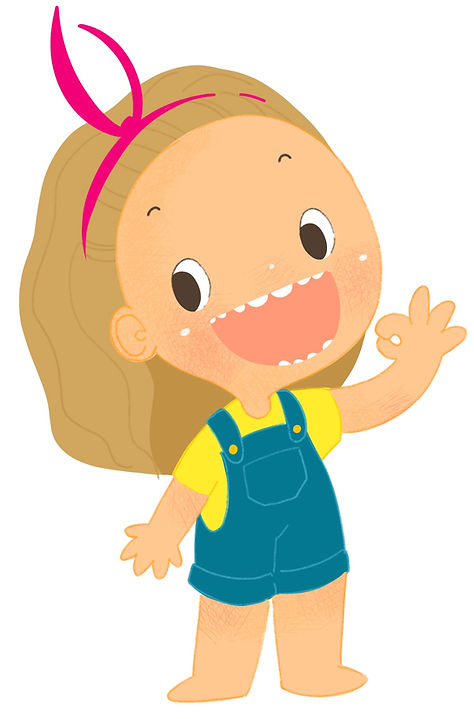

Play With
Attachment In Mind.
Bonds with caregivers are a child's template for relationships for the rest of his or her life. If you'd like to enhance the secure bond between yourself and your child, or if your family is facing issues related to adoption, I can help! Often this involves something called Dyadic Therapy, which is focused specifically on a parent or caregiver and child.
Regulate Emotions
We help your child learn to regulate their emotions effectively. Our supportive and nurturing approach fosters emotional intelligence, enabling them to understand and manage their feelings.
Improve Parent/Child Relationship
Together, we can create a nurturing environment that promotes healthy connections and lasting bonds. Let’s embark on this journey to strengthen your family ties.
Improving the parent/child relationship is our mission. We provide tools and resources to foster open communication understanding, and trust between parents and their children.
PLAY therapy
VS. TALK therapy
Narumi is trained in attachment focused parenting strategies:
Theraplay® is a treatment modality, which helps children to regulate emotions, decrease arousal levels and improve the parent/child relationship, thus enhancing and improving compliance with behavior expectations. Theraplay® is a loving and nurturing approach to parenting and behavior issues. Theraplay has been evaluated by the California Evidence Based Clearinghouse as being an ‘evidence based’ treatment for children and adolescents.
Schedule Your Appointment Today!
Recent research shows that Play Therapy operates on lower brain regions including the Limbic System and Central Nervous System (where the fight/flight response originates). Traditional talk therapy utilizes the higher brain regions such as the Cortex (the rational brain) which allows for verbalization, understanding, logic and reasoning. Lower brain regions are more non-verbal and responsive to touch, sound and movement all of which are accessed during Play Therapy. In children the Cortex is not as well developed as in adults. Thus, Play Therapy helps children self-soothe and reorganize the lower brain regions.

the power of play & the therapeutic relationship
A Happier, Healthier Child
Play therapy is the most appropriate treatment for helping children work through difficult times and helping parents gain a better understanding of what their child is going through. Children benefit most from play therapy versus traditional “talk therapy” as they can more effectively process through difficult situations and difficult emotions through play. What counseling and psychotherapy aim to do for adults, play therapy aims to do for children. Through play therapy, children learn to communicate with others, express feelings, modify behavior, develop problem-solving skills, and learn a variety of ways of relating to others. Play provides a safe psychological distance from their problems and allows expression of thoughts and feelings appropriate to their development.
The relationship between child and play therapist is crucial in having a ‘successful’ therapeutic experience. The play therapist must be able to accept the child no matter what is revealed or expressed by the caregivers or thru play. The therapist views the child with empathy and becomes a partner in their journey to self discovery.Historically, professionals have focused efforts on getting children to talk about their experiences in an effort to have a catharsis or emotional release the way that adults might. Over the years we are learning that this approach can actually be more damaging than beneficial, potentially re-traumatizing children who are unable to understand or make sense of experiences; in essence they may relive frightening situations.



Is VIRTUAL play therapy possible?
Virtual Play Therapy not only is POSSIBLE, but it is just as fun and therapeutic as "in person" Play Therapy!
However, virtual Play Therapy may not be the most appropriate approach for every child. My professional experience led me to only consider children over the age of 6 for Virtual Play Therapy, however for children under this age much of the work is done with the parent/guardian, so services may still be indicated.
A 15 minute free consultation to determine whether my services would meet your child's needs. For those over 6 there are different factors that I would consider such as the child's ability to connect through the screen, the child's learning preference, diagnosis, the severity of the presented symptoms, etc...
For some children Virtual Play therapy can be an even better approach than in person Play Therapy! For example a child who enjoys computer engagement, or a child with social anxiety or separation anxiety virtual Play Therapy may be the best therapeutic option.
Virtual Play Therapy offers an tremendous variety of virtual activities and games that you can be used with children based on their preferences, strengths, abilities and needs, including Virtual Sandtray.

Is VIRTUAL play therapy possible?
Nurturing, structuring, challenging and spending quality time.
Through the lens of attachment theory, parents gain a new understanding of how children and families interact and bond to one another in healthy vs maladaptive ways. We will be looking at the manner in which trauma, abuse, and neglect impact the bonds of attachment within the family system and how the power of attachment-based play therapy can help to heal these wounds. Narumi's books "You are so Precious Rosemarie" and "I love you from A to Z, Rosemarie" are written keeping in mind these premises and will offer the parent, teachers or caregivers tips and helpful ideas to promote a long-lasting healthy attachment. All her products are created with an attachment oriented mindset!


Interested In Having A Speaker?
Need a speakerPlay therapy is the most appropriate treatment for helping children work through difficult times and helping parents gain a better understanding of what their child is going through. Children benefit most from play therapy versus traditional “talk therapy” as they can more effectively process through difficult situations and difficult emotions through play